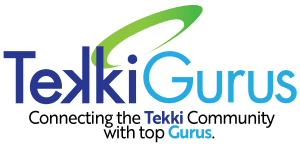Managed Metadata Service Is a Tool, Not a Solution
One of the reasons I enjoy speaking at SharePoint Saturday events is that they provide a great dialog with customers, partners, and SharePoint experts around the topics that interest me. While the basic flow of the decks I share remain the same from event to event, I am constantly adding to them, refining their message, and even changing things up mid-presentation based on the direction of the questions and comments from the audience, and by the content being offered by fellow speakers in other sessions. I prefer these events to be interactive – not just me standing up front talking.
In Charlotte earlier this month, my topic was Managing Metadata in a Social Media World (you can view a version of the presentation on SlideShare here). I chose to focus more on process and governance, thanks in part to Chris McNulty taking a much  deeper dive into specific 2010 functionality in the session before mine. Chris walked through the Managed Metadata Service in detail, and the advances SharePoint has made in metadata and taxonomy management. In my own session, I really tried to cement the notion that while MMS and the ability for users to generate their own tags and keywords within SharePoint 2010 will help administrators manage metadata, this new capability in no way absolves them from governing this process. They still very much need to manage user input, and do the difficult work around mapping taxonomy and identifying keywords and metadata to power their SharePoint deployment.
deeper dive into specific 2010 functionality in the session before mine. Chris walked through the Managed Metadata Service in detail, and the advances SharePoint has made in metadata and taxonomy management. In my own session, I really tried to cement the notion that while MMS and the ability for users to generate their own tags and keywords within SharePoint 2010 will help administrators manage metadata, this new capability in no way absolves them from governing this process. They still very much need to manage user input, and do the difficult work around mapping taxonomy and identifying keywords and metadata to power their SharePoint deployment.
 For those not yet familiar with some of the advances SharePoint 2010 has made in this space, administrators can more closely manage their site hierarchy, taxonomy. Essentially, Managed Metadata Service allows them to build out a “public library” of keywords and metadata, and then consume that service from various site collections and web applications. SharePoint 2010 greatly improves metadata governance, but also provides flexibility for ad hoc metadata creation. Users who add or modify content can assign pre-defined tags from the library, or assign their own tags. The user simply starts typing, and the system suggests similar existing tags – or they can select Create New to add their own. This is a HUGE advance in metadata management.
For those not yet familiar with some of the advances SharePoint 2010 has made in this space, administrators can more closely manage their site hierarchy, taxonomy. Essentially, Managed Metadata Service allows them to build out a “public library” of keywords and metadata, and then consume that service from various site collections and web applications. SharePoint 2010 greatly improves metadata governance, but also provides flexibility for ad hoc metadata creation. Users who add or modify content can assign pre-defined tags from the library, or assign their own tags. The user simply starts typing, and the system suggests similar existing tags – or they can select Create New to add their own. This is a HUGE advance in metadata management.
It can also create a huge mess without proactive governance. One of the problems many organizations are experiencing with SharePoint is the rapid accumulation in content without equal growth in content management. We’ve become content hoarders, filling up our team sites and My Sites with our content like packrats, without regard for the impact to search. We add this content with wild abandon, rarely assigning the necessary metadata for anyone (even ourselves) to find this content again. We’re recreating the silos of the file shares we tries to replace when we moved to SharePoint because we didn’t do the upfront work to define our taxonomy, and create the governance policies and procedures to manage it as it grew. The new capabilities within SharePoint do not solve these issues. In fact, by giving individuals more control over their own metadata, it could exacerbate the problem.
 Just like moving to a new house, moving to SharePoint 2010 is an opportunity to do some spring cleaning, and purge our lives of this hoarding mentality. Make sure you include in your migration planning the efforts necessary to define and refine your current project, product, and process taxonomies and folksonomies, and to work with your users to define a metadata management cycle, helping your library or tags and keywords to grow organically and conscientiously. Do this, and you will improve your search experience, which will directly improve your user adoption rates, and give your SharePoint 2010 deployment a better chance of success.
Just like moving to a new house, moving to SharePoint 2010 is an opportunity to do some spring cleaning, and purge our lives of this hoarding mentality. Make sure you include in your migration planning the efforts necessary to define and refine your current project, product, and process taxonomies and folksonomies, and to work with your users to define a metadata management cycle, helping your library or tags and keywords to grow organically and conscientiously. Do this, and you will improve your search experience, which will directly improve your user adoption rates, and give your SharePoint 2010 deployment a better chance of success.




